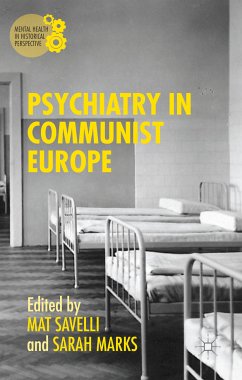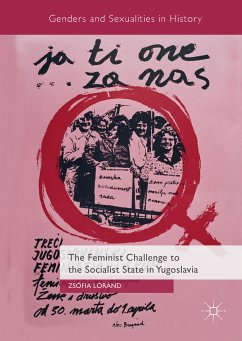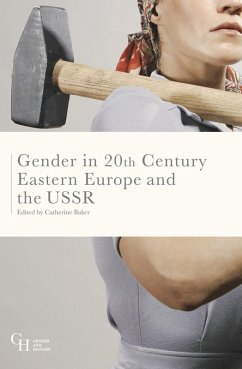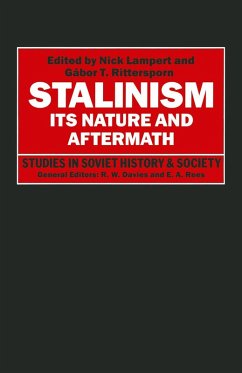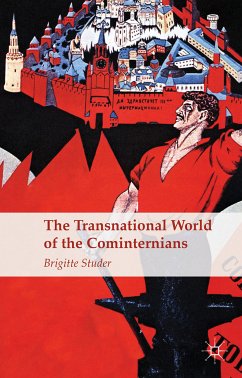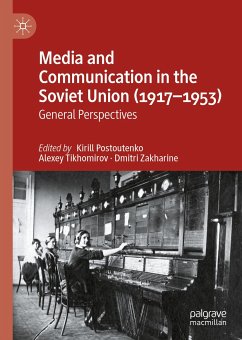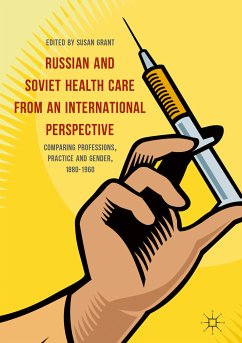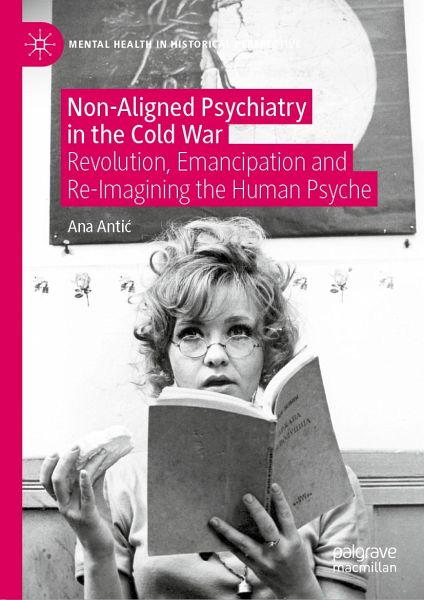
Non-Aligned Psychiatry in the Cold War (eBook, PDF)
Revolution, Emancipation and Re-Imagining the Human Psyche
Versandkostenfrei!
Sofort per Download lieferbar
88,95 €
inkl. MwSt.
Weitere Ausgaben:

PAYBACK Punkte
44 °P sammeln!
This book explores the relationship between socialist psychiatry and political ideology during the Cold War, tracing Yugoslav 'psy' sciences as they experienced multiple internationalisations and globalisations in the post-WWII period. These unique transnational connections - with West, East and South - remain at the centre of this book. The author argues that the 'psy' disciplines provide a window onto the complications of Cold War internationalism, offering an opportunity to re-think postwar Europe's internal dynamics. She tells an alternative, pan-European narrative of the post-1945 period,...
This book explores the relationship between socialist psychiatry and political ideology during the Cold War, tracing Yugoslav 'psy' sciences as they experienced multiple internationalisations and globalisations in the post-WWII period. These unique transnational connections - with West, East and South - remain at the centre of this book. The author argues that the 'psy' disciplines provide a window onto the complications of Cold War internationalism, offering an opportunity to re-think postwar Europe's internal dynamics. She tells an alternative, pan-European narrative of the post-1945 period, demonstrating that, in the Cold War, there existed sites of collaboration and vigorous exchange between the two ideologically opposed camps, and places like Yugoslavia provided a meeting point, where ideas, frameworks and professional and cultural networks from both sides of the Iron Curtain could overlap and transform each other. Moreover, the book offers the first analysis of East European psychiatrists' contacts with and contributions to the decolonizing world, exploring their participation in broader political discussions about decolonization, anti-imperialism and non-alignment.
The Yugoslav brand of East-West psychoanalysis and psychotherapy bred a truly unique intellectual framework, which enabled psychiatrists to think through a set of political and ideological dilemmas regarding the relationship between individuals and social structures. This book offers a thorough reinterpretation of the notion of 'communist psychiatry' as a tool used solely for political oppression, and instead emphasises the political interventions of East European psychiatry and psychoanalysis.
This monograph has partly been funded by the European Research Council (ERC) under the European Union's Horizon 2020 research and innovation programme (ERC Starting Grant DECOLMAD 851871).
Dieser Download kann aus rechtlichen Gründen nur mit Rechnungsadresse in A, B, BG, CY, CZ, D, DK, EW, E, FIN, F, GR, HR, H, IRL, I, LT, L, LR, M, NL, PL, P, R, S, SLO, SK ausgeliefert werden.



